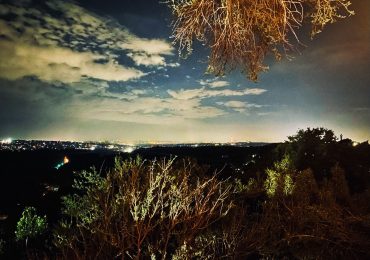American–Canadian author, filmmaker and Zen Buddhist priest Ruth Ozeki has been announced as the winner of the 2022 Women’s Prize for Fiction, for her fourth novel The Book of Form and Emptiness.
The Book of Form and Emptiness tells the story of fourteen-year-old Benny Oh, who begins to hear voices after the tragic death of his father. Judges called the book ‘a celebration of the power of books and reading’ and ‘a complete joy’.
Ozeki was awarded the prize at a ceremony in London, hosted by novelist and Women’s Prize founder and director Kate Mosse. 2022 Chair of judges Mary Ann Sieghart presented Ozeki with the £30,000 prize (about R586,000), endowed by an anonymous donor, and the limited edition bronze figurine known as the ‘Bessie’.
‘This is absurd,’ Ozeki said as she took the stage, adding disbelievingly: ‘I don’t win things.’
She continued: ‘It’s kind of embarrassing, because when one is nominated for a prize one does have to think, you know, what, if? So then you prepare a little speech, and then you think “I’m never going to give this”. But one of the things that I’ve been thinking about a lot is how I would not be here without the support of women and women’s institutions. And this is why this prize is so important to me.’
Ozeki used the opportunity to pay tribute to the women and women’s institutions who have supported her writing over the years, saying, ‘I’m a firm believer in bootstrapping, that women have to support each other and bootstrap each other.’ She went on to thank her alma mater Smith College, one of the oldest existing women’s colleges in the United States; the non-profit Women Make Movies; the editor Carole DeSanti, Ozeki’s former classmate at Smith who acquired her first book; and Hedgebrook Farm writing retreat, where she went to recover from writer’s block after the death of her mother. She also gave a shout-out to Leila Mottley, her former student, who was in town promoting her debut novel Nightcrawling.
‘I just wanted to call out the names of the women who have supported me and the institutions that have supported me,’ Ozeki said, ‘because now more than ever this is the time that we need to speak out, we need to rewrite somehow the dominant narratives that have landed us into quite dire straits, and this prize has never been more timely.’
Judging chair Sieghart said of The Book of Form and Emptiness:
‘In an extraordinary year for fiction written by women, and from an incredibly strong shortlist, we were thrilled to choose Ruth Ozeki’s The Book of Form and Emptiness, which stood out for its sparkling writing, warmth, intelligence, humour and poignancy. A celebration of the power of books and reading, it tackles big issues of life and death, and is a complete joy to read. Ruth Ozeki is a truly original and masterful storyteller.’
Also on the shortlist this year were Great Circle by Maggie Shipstead, Sorrow and Bliss by Meg Mason, The Bread the Devil Knead by Lisa Allen-Agostini, The Island of Missing Trees by Elif Shafak and The Sentence by Louise Erdrich.
The winner and the other five shortlisted authors also receive a bespoke leather-bound edition of their novel.
The inspiration for the Women’s Prize—previously known as the Baileys Women’s Prize for Fiction and then the Orange Prize for Fiction—came about after the 1991 Booker Prize, when none of the six shortlisted books was by a woman, despite roughly sixty per cent of eligible novels published that year being by women authors. Research showed that women’s literary achievements were often not acknowledged by existing major literary prizes.
Last year’s winner was Susanna Clarke, for her novel Piranesi.





